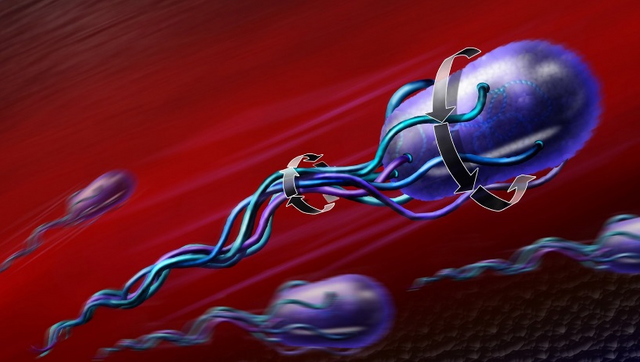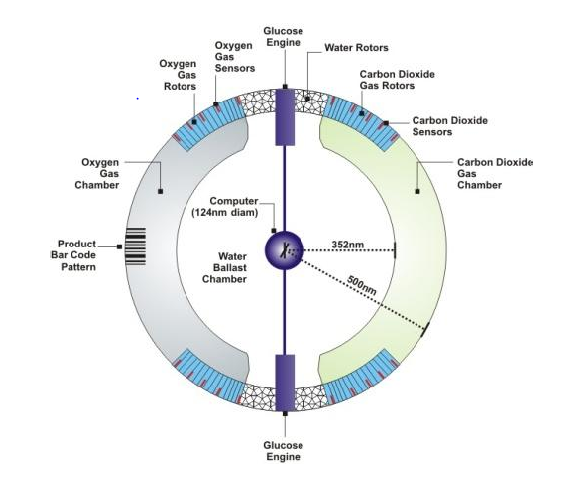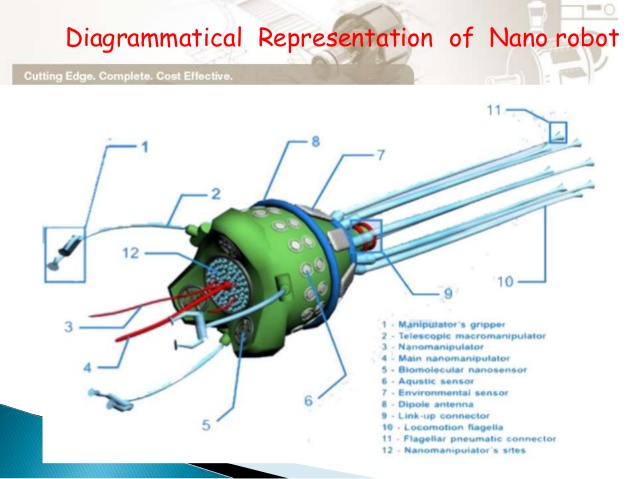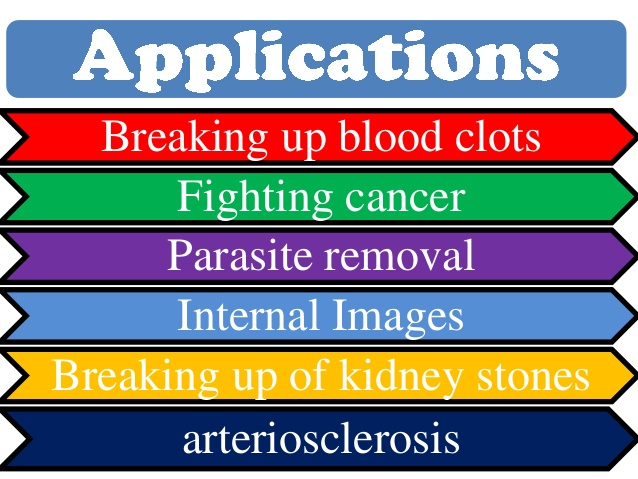
Man in the history of his existence has always wanted to change his life for the better and constantly there were scientists who made more and more discoveries. Primitive society invented the first tools of labor, a little later tamed wild animals. Now the modern public can hardly live without new discoveries and technologies. According to scientists, a new level of development will be in nanotechnology, and, in particular, small systems capable of performing human voice commands. These creatures were called "nanorobots".
Eric Drexler first mentioned this creature in his book "Machines of Creation: the advent of the era of nanotechnology," written not so long ago, in 1986.
Today, scientists have already invented several versions of nanorobots, which are themselves able to control fine particles. American chemists have developed the world's first straight bipedal model. First of all, they used DNA fragments. Such a "traveling" robot exists in a variety of copies living in a buffer solution. In appearance it is a bit like a sushi sticks - a pair of legs, ten nanometers long, completely free from the one end, and they are elasticly connected at the other end. Each of the legs consists of thirty-six nucleotide pairs, which in turn are held together by hydrogen bonds according to the simplest scheme: adenine-thymine and after guanine-cytosine. And the remains of single-stranded DNA hang from the tips.

Scientists say that the talents of such robots will find their vocation in the first place in nanomedicine. Nanorobot introduced into a living organism, for example, a person, will not bring the slightest harm to a living being, moving through various systems. For this experience in Montreal, the first and only currently prototype robot control has already been born. Thus, it is possible to destroy harmful organisms and, possibly, the incipient cancer cells. To accomplish this task, we used a simple iron ball with a diameter of just over one millimeter. His first test was in the body of a live pig.
At this point in time, some suggestions have already been made to improve the invention:

- Manipulators (for direct communication with the object);
- navigation systems (determine the location and the subsequent route);
- nanosensors (simplified communication with various individual molecules).
Nanorobots are theoretically able to extend a person's life for an unlimited period, thereby realizing the millennial dream of humanity about immortality, we read from Eric Drexler:
"Imagine someone who is now thirty.In the next thirty years, biotechnology will be very advanced, but this thirty-year-old will be only sixty." The statistical tables, which do not imply any success in medicine, say that a thirty-year-old US citizen can now expect to live almost fifty years, that is, until the 2030s. Fairly ordinary successes (such as those demonstrated in animals) are likely to add years, perhaps decades, to life before the 2030s.

The very beginning of cell repair technology could prolong life for several decades. In short, medicine in 2010, 2020 and the 2030s will apparently extend the life of our thirty-year-olds until the 2040s and 2050s. By then, if not earlier, progress in medicine can allow real rejuvenation. Thus, those who are under thirty (and possibly those who are significantly older) can expect, at least in advance, that medicine will intercept the process of their aging and transport them whole and unharmed in the era of cell renewal, energy and unlimited life expectancy. "

References for Text and Images:
- https://www.ijraset.com/fileserve.php?FID=10296
- http://sciencebox12.blogspot.in/2010/04/how-nanorobots-will-work.html
- http://pubs.sciepub.com/bse/2/2/3/
steemSTEM
Want to discover more science and technology related content on Steemit? Follow @steemSTEM to see a weekly selection of quality science posts, as well as STEM-related contests. Are you interested in writing posts on related topics yourself? Make sure to join the steemSTEM channel on steemit.chat to engage with other scientists on steemit!

Downvoting a post can decrease pending rewards and make it less visible. Common reasons:
Submit